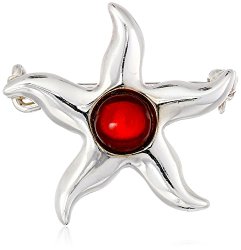$14.78
$14.78
(SAVE Now!)
as of 12/22/2024 (Details)
The history of amber begins about 90 millions years ago in lush green forests in the region of modern day Northern Europe. Trees in these regions produced an aromatic resin, used for protection against woodpeckers, fungus and bark-eating insects. This resin would slowly cascade covering the bark of the tree entrapping organic debris and sometimes live insects along the way. Nearly 40 different species of trees produced this protective resin, accounting for the numerous colors of amber today. Over millions of years, this golden resin produced by pre-historic trees accumulated in many layers in the soil below. With the onset of The Great Ice Age, these forests perished, the soil froze and the fossilization process began creating deposits of beautiful amber. After The Great Ice, melted glaciers flowed on top of the amber deposits, forming the Baltic and North Seas. Due to this geological occurrence, amber found its new home in the sea. The gem spent many thousands of years below 100 feet of sand at the sea bottom. After violent sea storms, various lumps of amber would separate and float among the waves, eventually reaching the shore to be discovered by man. The Aisti people were the first to pick up amber lumps along the Baltic shores 25,000 years ago. Aisti believe that amber was pieces of the Sun that had fallen down to the earth and cherished it as a gift from the heavens.
Technical Details
- The natural properties and composition of mined gemstones define the unique beauty of each piece. The image may show slight differences to the actual stone in color and texture
- Imported
